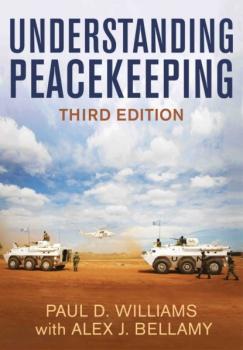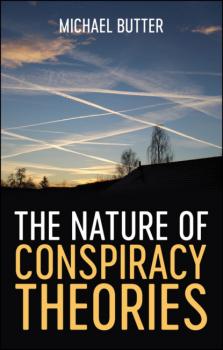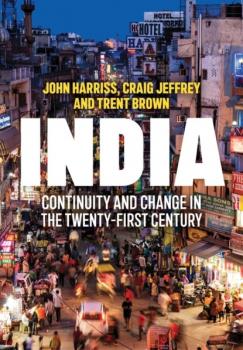Зарубежная публицистика
Различные книги в жанре Зарубежная публицистикаМошенники в мире искусства
Книга озвучена искусственным интеллектом. Он был разработан специально для чтения текста, умеет учиться и постоянно становится лучше. Это подробное и всестороннее исследование мошенничества в мире искусства. Авторы собирали информацию на основании собственных заметок, интервью с мошенниками, протоколов допросов, судебных решений и архивных материалов. Они рассказывают о том, что происходило и сотни лет назад, и в наши дни в Финляндии, в России и по всему миру, они говорят о том, как подделывают картины и как эти подделки обнаруживают. Некоторые истории настолько невероятны, что могут даже показаться выдуманными, однако все они реальны.
Новое долголетие. На чем будет строиться благополучие людей в меняющемся мире
Вы хотите жить дольше? Вне зависимости от вашего ответа вам, скорее всего, придется. Это еще одно из неизбежных следствий того триумфа науки и технологий, который мы переживаем сегодня. Но куда приведет нас этот небывалый прогресс? Если люди будут жить 100 или 120 лет, сколько из них они смогут (или будут вынуждены) работать? Хватит ли на всех рабочих мест? И как жить не только долго, но и счастливо? Ясно одно: существуют глубокие опасения, связанные с противоречием между индустриальным развитием и преимуществами долгой жизни. Беспрецедентный технологический прогресс не сопровождался необходимыми инновациями и изменениями в социальных структурах. Поэтому в этом непрерывно меняющемся мире мы до сих пор не открыли для себя новые способы жить. Эндрю Скотт и Линда Граттон отвечают на вопрос «Как долголетие изменит нашу жизнь и наш социум?». Опираясь на исследования в области экономики и психологии, они предлагают собственное видение инструментов, необходимых для решения предстоящих задач по созданию нового социального уклада. На примере вымышленных персонажей из разных возрастных и социальных групп они описывают действия и шаги, которые каждый из нас должен предпринять, чтобы приспособиться к долгой жизни. Любой из нас уже сегодня может стать творцом собственной биографии нового образца!
Les Capitalistes du XXIème siècle
La «crise corona» a accéléré la montée en puissance des nouveaux gestionnaires financiers comme BlackRock, Vanguard, State Street et KKR. Depuis une décennie ils sont les propriétaires dominants des banques et des grandes entreprises, aux États-Unis aussi bien qu’en Allemagne, Angleterre, Espagne, la Suisse et en France y compris les entreprises numériques comme Amazon, Google, Facebook, Microsoft et Apple. BlackRock & al. sont aussi les propriétaires des entreprises dominantes de pétrole, charbon, armement, agrobusiness, ils coopèrent avec les services secrets états-uniens, promeuvent des conditions de travail précaires et aussi l’évasion fiscale de leurs clients super riches. BlackRock & al. font partie de «America first» – Trump, Johnson, Macron, Merkel, Netanjahu sont leur personnel politique préféré. Ils exploitent la crise multiple «corona» dont ils sont responsables: crises de santé publique, de l’économie, des partis politiques longtemps gouvernants, des média. BlackRock en tant que conseiller des banques centrales aux États-Unis et dans l’Union Européenne a contribué à la financialisation au lieu d’innovations et réformes nécessaires – et joue au sauveur avec les programmes d’aide économique «corona»: cet immense endettement des états sera à la charge des populations majoritaires. Rügemer analyse aussi le conflit latent entre les États-Unis et l’Europe et présente le capitalisme alternatif sous domination communiste dans la République Populaire de la Chine: accroissement persévérant des salaires, santé et éducation gratuites et sécurité sociale, innovations technologiques, investissement dans les pays économiquement les plus avancés aussi bien que le succès transcontinentale le la Nouvelle Route de Soie – globalisation inclusive sans accompagnement militaire.
Understanding Peacekeeping
Peace operations remain a principal tool for managing armed conflict and protecting civilians. The fully revised, expanded and updated third edition of Understanding Peacekeeping provides a comprehensive and up-to-date introduction to the theory, history, and politics of peace operations. Drawing on a dataset of nearly two hundred historical and contemporary missions, this book evaluates the changing characteristics of the contemporary international environment in which peace operations are deployed, the strategic purposes peace operations are intended to achieve, and the major challenges facing today’s peacekeepers. All the chapters have been revised and updated, and five new chapters have been added – on stabilization, organized crime, exit strategies, force generation, and the use of force. Part 1 summarizes the central concepts and issues related to peace operations. Part 2 charts the historical development of peacekeeping, from 1945 through to 2020. Part 3 analyses the strategic purposes that United Nations and other peace operations are intended to achieve – namely, prevention, observation, assistance, enforcement, stabilization, and administration. Part 4 looks forward and examines the central challenges facing today’s peacekeepers: force generation, the regionalization and privatization of peace operations, the use of force, civilian protection, gender issues, policing and organized crime, and exit strategies.
Симпсоны. Вся правда и немного неправды от старейшего сценариста сериала
С самого первого сезона, с января 1990 года, каждая серия «Симпсонов» начинается с шутки, которую не замечают десятки миллионов зрителей за сотни миллионов просмотров. Когда название сериала выплывает из-за облаков, сначала вы видите только первую половину фамилии, «The Simps»; вторая показывается чуть позже. Все еще не понимаете? В английском языке «Simps» означает простаки, туповатые граждане, – как те, которых вы увидите в сериале. Но не расстраивайтесь – это не последняя шутка, которую вы не заметили в «Симпсонах». Обо всех них и не только мы поговорим в этой книге. Отмечая тридцать лет с момента выхода первой серии на экраны, самое время узнать, с чего все начиналось. Кому в голову пришла идея создать вымышленный город, населенный желтыми людьми? Кто придумывает для сценария шутки и ситуации, которые порой опережают будущее? Какие препятствия пережил сериал за свою долгую телевизионную карьеру длинною в 32 сезона? На эти и многие другие вопросы вам ответит Майк Райсс – сценарист и продюсер, проработавший в «Симпсонах» с самой первой серии. Узнайте о создании любимого сериала все!
Despised
The typical contemporary Labour MP is almost certain to be a university-educated Europhile who is more comfortable in the leafy enclaves of north London than the party’s historic heartlands. As a result, Labour has become radically out of step with the culture and values of working-class Britain. <p>Drawing on his background as a firefighter and trade unionist from Dagenham, Paul Embery argues that this disconnect has been inevitable since the Left political establishment swallowed a poisonous brew of economic and social liberalism. They have come to despise traditional working-class values of patriotism, family and faith and instead embraced globalisation, rapid demographic change and a toxic, divisive brand of identity politics. Embery contends that the Left can only revive if it speaks once again to the priorities of working-class people by combining socialist economics with the cultural politics of belonging, place and community.</p> No one who wants to really understand why our politics has become so dysfunctional and what the Left can do to fix it can afford to miss this authentic, insightful and passionate book.
France
France is the most-visited country in the world. It attracts millions of tourists, most of whom come in search of beautiful architecture, good food, and fine art. But appearances can be deceptive. France is not only a place of culture and glamour; it also carries the bitter memories of violence, division and broken promises. <br /><br />In this arresting book, Emile Chabal, a leading specialist of contemporary France, tells the story of a paradoxical country. From the calamitous defeat by Hitler's armies in 1940 to the spectacular gilets jaunes protests, he explores the contradictions that have shaped French history over the last eighty years. The picture that emerges is one of a nation struggling to reconcile its core political values with the realities of a diverse society.
The Nature of Conspiracy Theories
Conspiracy theories seem to be proliferating today. Long relegated to a niche existence, conspiracy theories are now pervasive, and older conspiracy theories have been joined by a constant stream of new ones – that the USA carried out the 9/11 attacks itself, that the Ukrainian crisis was orchestrated by NATO, that we are being secretly controlled by a New World Order that keep us docile via chemtrails and vaccinations. Not to mention the moon landing that never happened. <br /><br />But what are conspiracy theories and why do people believe them? Have they always existed or are they something new, a feature of our modern world? <br /><br />In this book Michael Butter provides a clear and comprehensive introduction to the nature and development of conspiracy theories. Contrary to popular belief, he shows that conspiracy theories are less popular and influential today than they were in the past. Up to the 1950s, the Western world regarded conspiracy theories as a legitimate form of knowledge and it was therefore normal to believe in them. It was only after the Second World War that this knowledge was delegitimized, causing conspiracy theories to be banished from public discourse and relegated to subcultures. The recent renaissance of conspiracy theories is linked to internet which gives them wider exposure and contributes to the fragmentation of the public sphere. Conspiracy theories are still stigmatized today in many sections of mainstream culture but are being accepted once again as legitimate knowledge in others. It is the clash between these domains and their different conceptions of truth that is fuelling the current debate over conspiracy theories.
India
India has been catapulted to the centre of world attention. Its rapidly growing economy, new geo-political confidence, and global cultural influence have ensured that people across the world recognise India as one of the main sites of social dynamism in the early twenty-first century. <br /><br />In this book, research leaders John Harriss, Craig Jeffrey and Trent Brown explore in depth the economic, social, and political changes occurring in India today, and their implications for the people of India and the world. Each of the book’s fourteen chapters seeks to answer a key question: Is India’s democracy under threat? Can India’s Growth be sustained? How are youth changing India? Drawing on a wealth of scholarly and popular material as well as their own experience researching the country during this period of major transformation, the authors draw the reader into key debates about economic growth, poverty, environmental justice, the character of Indian democracy, rights and social movements, gender, caste, education, and foreign policy. India, they conclude, has undergone some extraordinary and positive changes since the early 1990s but deeply worrying threats remain: increasing authoritarianism, growing inequality, entrenched poverty, and environmental vulnerability. How India responds to these crucial challenges will shape the world’s largest democracy for years to come.
War and Conflict in the Middle East and North Africa
For much of the last half century, the Middle East and North Africa (MENA) has seemed the outlier in global peace. Today Iraq, Libya, Israel/Palestine, Yemen, and Syria are not just countries, but synonyms for prolonged and brutal wars. But why is MENA so exceptionally violent? More importantly, can it change? <br /><br />Exploring the causes and consequences of wars and conflicts in this troubled region, Ariel Ahram helps readers answer these questions. In Part I, Ahram shows how MENA’s conflicts evolved with the formation of its states. Violence varied from civil wars and insurgencies to traditional interstate conflicts and affected some countries more frequently than others. The strategies rulers employed to stay in power constrained how they recruited, trained, and equipped their armies. Part II explores dynamics that trap the region in conflict—oil dependence, geopolitical interference, and embedded identity cleavages. The catastrophic wars of the 2010s reflect the confounding effects of these traps, culminating in state collapse and intervention from the US and Russia, as well as regional powers like Iran, Saudi Arabia, and the UAE. Finally, Ahram considers the possibilities of peace, highlighting the disjuncture between local peacebuilding and national and internationally-backed mediation. <br /><br /><i>War and Conflict in the Middle East and North Africa </i>will be an essential resource for students of peace and security studies and MENA politics, and anyone wanting to move beyond headlines and soundbites to understand the historical and social roots of MENA’s conflicts.









